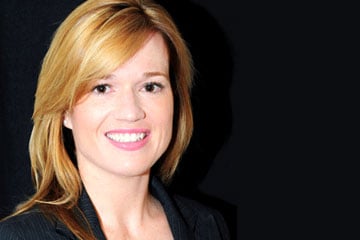

Yasir Naqvi revealed the new Juror Support Program yesterday afternoon at the John Sopinka Courthouse in Hamilton, Ont. He said jurors play an integral role in the justice system and their communities, and that while it can be rewarding, “serving on a jury is not an easy job by any measure.
“Sometimes, evidence and testimony they have to consider can be graphic and deal with very violent crimes,” he said, adding that exposure to such material can have a lasting traumatic effect that impacts their daily lives and mental health.
“They very much deserve the support for the work they do,” he added.
All jurors will be given a brochure after their trial is done to walk them through the program.
Also present for the unveiling of the program was Mark Farrant, a juror support activist who suffered from PTSD after serving as foreman on the jury of a disturbing 2014 case in Toronto. Naqvi, when new to his role as attorney general, saw Farrant on the news and heard his story of the aftermath of his jury duty.
“It moved me,” Naqvi said. “I contacted my staff to ask for what supports were there for jurors. People like Mark, who have done their duty and then came forward and talked about challenges they face, that’s why we’re here today.”
Naqvi said people are now “far more understanding and thoughtful and sophisticated about talking about mental health challenges.”
Farrant says he saw a gap — and experienced a gap — that impacted him dramatically. He started advocating for more support because he “just didn’t want this happening to somebody else.” He’s talked to jurors from coast to coast and has identified a need not only in Ontario but nationally.
“Even the provinces that purport to have a program in place — they all need to be dusted off and re-evaluated,” he says.
Kathryn Wells, a lawyer with Wells Criminal Law in Toronto, says she thinks the news is fabulous and “a very good step to recognizing what people participating in the administration of justice go through.
“I can’t tell you how many times I’ve done jury trials and seen jurors in tears,” she says. “I think it’s a very, very enormous task for a person to sit in judgment of someone else even without really disturbing evidence. It’s a big job. But then if you impose [upon them] cases where the subject matter is really traumatizing, there’s no question that there’s going to be an impact for some people.”
In response to an audience member’s questions, Naqvi said Hamilton was chosen in part because of the Tim Bosma case, one of the biggest trials in the city’s history. Dellen Millard and Mark Smich were found guilty of first-degree murder in the death of Bosma, a 32-year-old father who disappeared after leaving with the two men to test drive a truck he was trying to sell. The court established that Bosma was shot in his truck by the men and his body was incinerated at Millard’s family farm.
“Hamilton has seen some difficult cases — the Bosma trial is a very good example — so we felt it was appropriate we came to Hamilton to talk about the program and make sure the jurors that were involved in that trial would hear,” Naqvi said.
The program offers up to eight one-hour counselling sessions — four being offered initially, and an additional four if the juror feels they need it — with no out-of-pocket expenses.
Wells says eight sessions sounds “really substantial” considering that the majority of the population doesn’t have benefits, but Farrant says there needs to be a mechanism in place to handle the people who need more help than a pre-determined amount of counselling can provide.
“I fully support the program — it’s the right program, it’s the right approach,” he says. “We just have to ensure that there’s flexibility in the program.”
Farrant says he met with the attorney general and his staff privately to discuss the program, and he brought up his concerns.
“They need a baseline, and they have that baseline, and they’re very cognizant that there will be cases that have to be addressed outside how the program is framed,” he says.
He adds that any additional services beyond the eight sessions have to be offered at no cost as well, as OHIP doesn’t cover the cost of counselling.
Naqvi said during his speech “this is just the beginning” and there will be ongoing assessment and evaluation of the program as it gains momentum. He also said he was comfortable that the cost of the program would be absorbed into the existing ministry budget, with a better idea after intake numbers are established.
“I’m always available for them to bounce ideas off me, and they have done that, and I’m grateful for that,” Farrant says. “I’ve been pretty open and honest along the way. I’m looking forward to working with them on this and being there, in whatever form they require.”
The government hired a third party, Morneau Shepell, to provide the service and ensure confidentiality. Former jurors can call the support line at 1-844-JUROR-ON or visit the program’s website for more information.
When requesting counselling, jurors will need to provide the location of the court where they served on the jury, the dates the trial ran and name of the case. The next step is matching the juror with a qualified counsellor in the area. Jurors can choose to receive counselling over the phone, via email or by videoconference.